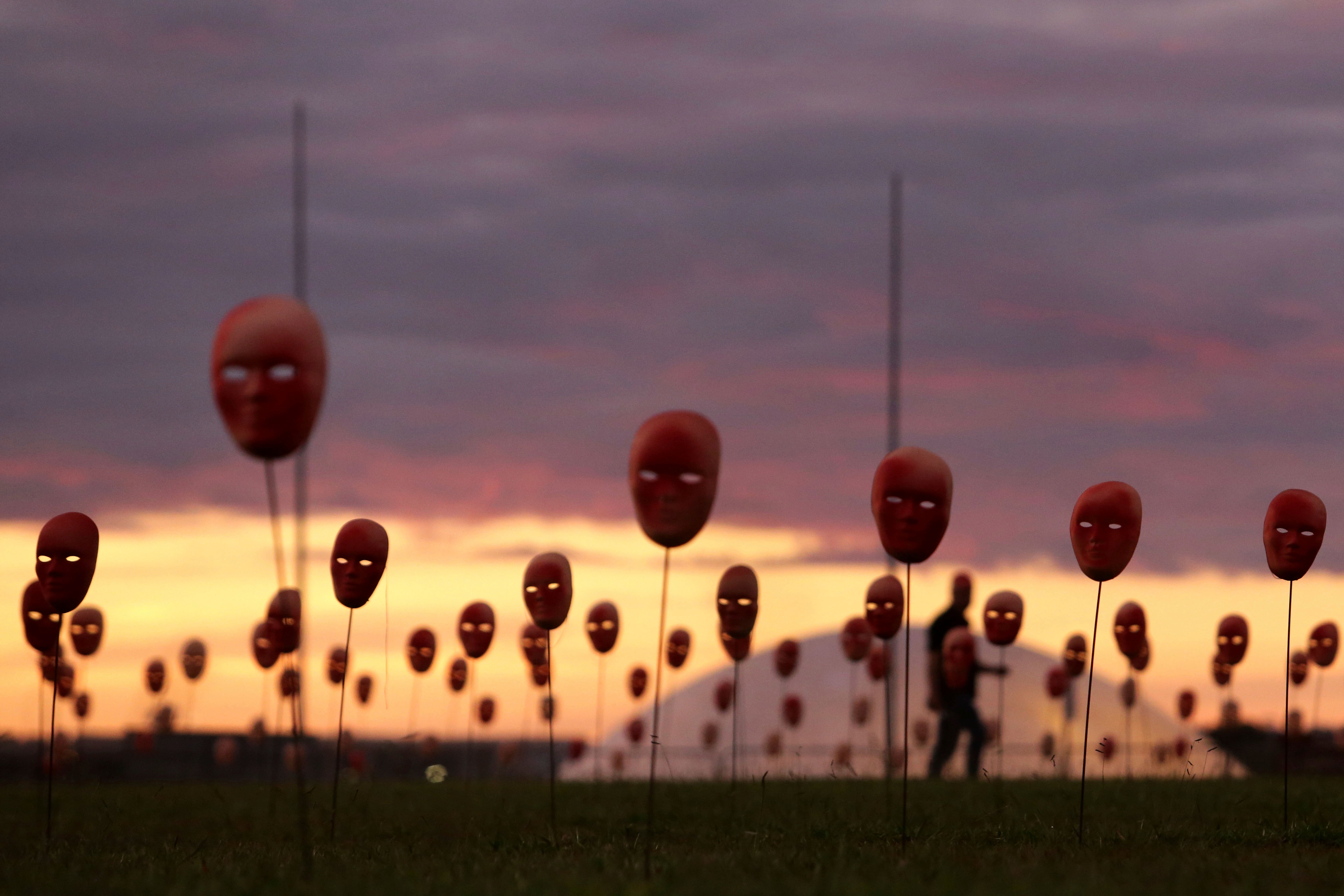Brazil's anti-corruption 'Car Wash' task force ends in gloom
A prominent task force of Brazilian prosecutors has been officially disbanded, marking the symbolic end of an investigative unit initially praised for tackling impunity among the nation’s political and business elite but lately under fire for allegations of bias in its probes

Your support helps us to tell the story
From reproductive rights to climate change to Big Tech, The Independent is on the ground when the story is developing. Whether it's investigating the financials of Elon Musk's pro-Trump PAC or producing our latest documentary, 'The A Word', which shines a light on the American women fighting for reproductive rights, we know how important it is to parse out the facts from the messaging.
At such a critical moment in US history, we need reporters on the ground. Your donation allows us to keep sending journalists to speak to both sides of the story.
The Independent is trusted by Americans across the entire political spectrum. And unlike many other quality news outlets, we choose not to lock Americans out of our reporting and analysis with paywalls. We believe quality journalism should be available to everyone, paid for by those who can afford it.
Your support makes all the difference.A prominent task force of Brazilian prosecutors was officially disbanded Wednesday, marking the symbolic end of an investigative unit initially praised for tackling impunity among the nation’s political and business elite but lately under fire for allegations of bias in its probes.
The “Car Wash” investigation began in March 2014 looking into black market money-changing involving a gas station in Brazil's capital, Brasilia, but it soon discovered billions of dollars in kickbacks related to construction contracts awarded by state-run oil giant Petrobras. Investigators found much of the illicit funds went to party coffers and politicians’ pockets.
The unit shared its findings with other nations, which spread the anti-corruption reckoning across the region.
Former presidents including Brazil’s Luiz Inácio Lula da Silva, Peru’s Alejandro Toledo, Panamá’s Ricardo Martinelli and El Salvador’s Mauricio Funes were all jailed for some time as a result of Car Wash investigations as were top executives of the major construction companies Odebrecht, Andrade Gutierrez, Queiroz Galvão and Camargo Correa. Odebrecht recently renamed itself Novonor.
The federal prosecutors’ office in the state of Paraná said in a statement that the task force s nine members have been reassigned to a group that fights organized crime, named Gaeco. Five of them will pursue continuing Car Wash investigations, while four are taking on entirely new obligations.
“The task force in Parana ceases to exist, but some of its members will work at Gaeco with the objective of continuing their work,” the statement said.
There were smaller spinoffs of Car Wash probes in the states of Sao Paulo and Rio de Janeiro. Prosecutors in Rio will likewise be absorbed by Gaeco, while those in Sao Paulo resigned en masse last year.
The Parana-based Car Wash operation arrested 295 people, brought charges against 533 people and secured jail sentences for 174 people, according to the statement. Its work recovered more than 4.3 billion reais ($800 million) that had been lost to corruption.
Leaked messages obtained by news website The Intercept Brasil in 2019 revealed that Sergio Moro, at the time a federal judge who was seen as spearheading the probe from Parana, collaborated with Car Wash prosecutors in ways that may have crossed ethical lines and possibly influenced jail sentences for da Silva, the former president. Brazil’s top court is expected to decide in the coming months whether his convictions should be overturned on those grounds.
The left-leaning da Silva was put behind bars in April 2018, effectively sidelining him from that year's presidential race. The victor of that vote, Jair Bolsonaro, campaigned on a platform of law and order, pledging to make Car Wash part of the government’s anti-corruption infrastructure. Moro became his justice minister, only to resign last April while alleging that the president had sought to intervene inappropriately in the federal police.
Meantime, the pace of Car Wash's investigations has wound down. Bolsonaro said in October last year that Car Wash was ending because his government is free of corruption.
Fabiano Angelico, a researcher on corruption and former consultant for Transparency International in Brazil, said Car Wash prosecutors did make mistakes that led to the end of the task force, including a strong political bias. But he added it is thanks to them that Brazilians understand for the first time what happens when widespread graft is exposed and how power structures move to stop investigations.
“Political leaders did not do anything with the results of the investigation, including Bolsonaro,” Angelico said. “The fight against corruption is a political weapon. Once the political use has worn out, it tends to lose importance, and that’s what happened here.”